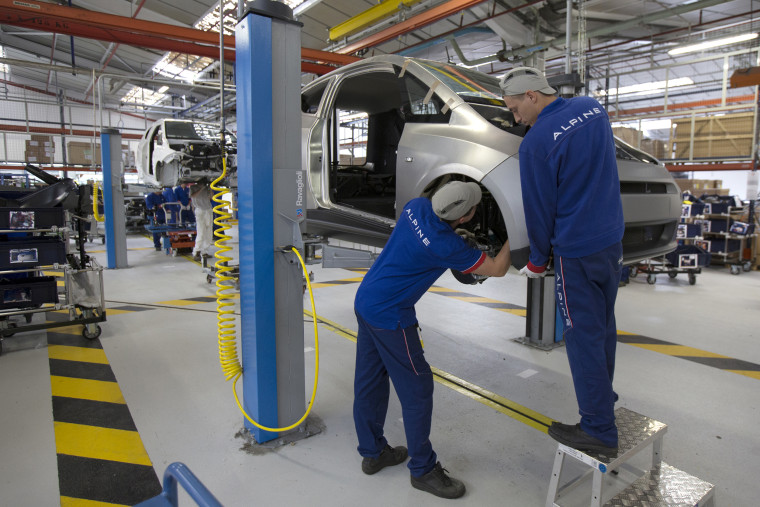President Joe Biden dubbed his $2 trillion American Jobs Plan a “once-in-a-generation investment” that will upgrade the country’s infrastructure and create millions of new jobs in the process. But even with billions of dollars earmarked for transportation-related projects, the plan is generating concerns within the auto industry.
The sweeping proposal includes $174 billion for electric vehicles, including hundreds of thousands of charging stations, tax incentives for electric cars, and government fleets that are all electric.
Measuring the impact on jobs is complex and depends upon a number of variables.
“Workers will disproportionately suffer if we do not make the transition to a green economy in the right way,” said Rory Gamble, president of the United Auto Workers Union, in a statement released on Wednesday after Biden unveiled his infrastructure plan.
"We need to ensure that this transition is stable, reliable and creates quality union wage jobs and flexible to market demand not relying on a one-size fits all solution," Gamble said.
At issue is the basic fact that despite their higher cost, electric vehicles, or EVs, are simpler to build and require significantly less labor to produce.
“That’s just the physics when you have fewer parts to put together,” said Mark Wakefield, head of AlixPartner’s automotive practice.
Putting together a modern gas drivetrain is complex and time-consuming, requiring lots of manual labor. Assembling batteries and battery packs is a lot simpler — and almost “all done by automation,” said Sam Abuelsamid, principal auto analyst with Guidehouse Insight. “It’s very much a clean room process. The only humans involved are the ones who maintain the machines.”
It’s not just at the plant where jobs may be lost. With fewer moving parts, cars will spend less time at dealer service centers or repair shops.
“EVs typically require less maintenance than conventional vehicles because there are fewer fluids, such as engine oil, that require regular maintenance. Brake wear is significantly reduced due to regenerative braking," according to the U.S. Department of Energy.
But there are opportunities to create new jobs, experts suggest.
“While direct manufacturing jobs are likely to decrease, there will be new jobs in everything from installing and maintaining EV chargers to the equipment needed for battery production,” Abuelsamid said.
Currently, the U.S. has capacity to produce 40 gigawatt-hours of batteries annually — including the country’s largest plant, the Tesla Gigafactory in Reno, Nevada. Were all vehicles battery-electric, the country would need 1.1 terawatts of batteries each year, requiring dozens more factories. The GM battery plant going into Lordstown, Ohio, will alone create 1,100 new jobs.
There also will be need for more workers to mine and refine lithium and other raw materials needed for EVs, and the energy sector will have to expand to supply power for charging all those batteries, whether from renewable or conventional plants.
In terms of traditional automotive manufacturing and service, the shift to EVs will result in a “net negative” in terms of jobs, according to Wakefield. But, “In the short-term there will be a lot of (new) jobs to build battery plants and support the creation of the infrastructure.”
Many of those infrastructure jobs will be temporary, however, and Wakefield said the long-term job count still could decline. But, it would be a mistake, he warned, to try to “stop the EV train" in the U.S.
"If we do, we will fall behind places like Europe and China” and lose even more jobs going forward.
